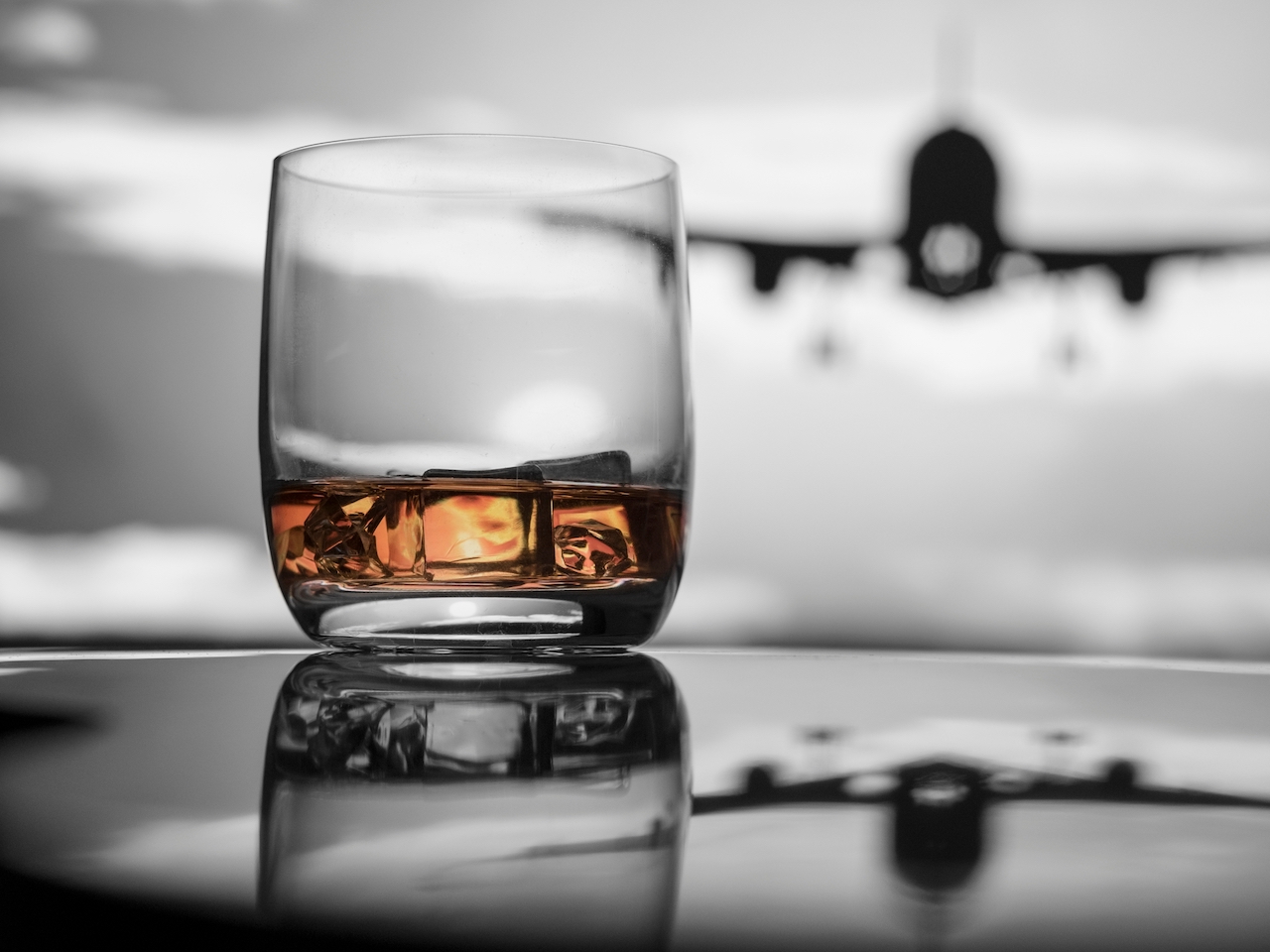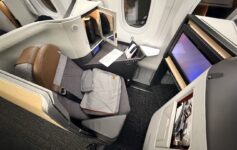Southwest Airlines and American Airlines have both banned alcohol aboard their flights amidst a spat of customer incidents, but as terrible as those issues have been, it won’t solve the problem.
If you are considering booking travel or signing up for a new credit card please click here. Both support LiveAndLetsFly.com.
If you haven’t followed us on Facebook or Instagram, add us today.

Passenger Incidents Increase
There has been a noticeable increase in incidents on airplanes in the past few months. With mostly domestic flights (and some traffic to Mexico and the Caribbean), there are more flights than in 2019 (peak travel) and carriers are selling lots of seats. It appears that some of those eager to return to the skies as part of that pent-up travel demand are a bit out of practice with safety and travel norms.
Initially, some incidents were part of the political division in the country during a chaotic election year. Those gave way to inflight protests over face masks. Now we are seeing even more incidents to the extent it has caught the attention of the Federal Aviation Administration (FAA) who began stiffening penalties for situations on board aircraft.
These issues have come at a cost to airlines in the form of flight diversions (can cost $20-50,000 each), injuries and abuse to flight attendants and crews, and the less tangible but still important concern for the safety and comfort of the traveling public. The industry is far too delicate at the moment to stand idly by.
Southwest and American Suspend Alcohol Service
American Airlines joined Southwest in suspending alcohol service. A leader of a amjor flight attendant union called for atotal ban of alcohol and her movement appears to be gaining steam.
“American suspended alcohol sales in the Main Cabin in late March 2020, and that service will remain suspended through Sept. 13,” an American Airlines spokesperson wrote in an email to The Hill.
“The airline cited a recent spike in “disturbing situations on board aircraft” when announcing the decision to delay the sale of alcoholic beverages.
“Over the past week we’ve seen some of these stressors create deeply disturbing situations on board aircraft,” Brady Byrnes, managing director of American Airlines’ flight service training and administration, told crew members in a letter on Saturday.
“Let me be clear: American Airlines will not tolerate assault or mistreatment of our crews,” he added.
An astute observer will note that premium cabins are not mentioned. United has stated they will join partially join the move, banning alcohol only on flights of 800 miles or shorter.
In the case of American Airlines, it has stated the ban will remain in effect until September 13, 2021 – coinciding with the current mask mandate expiration (assuming there is no extension.) The carrier has said it will move cautiously and deliberately when restoring pre-pandemic conditions.
Airline Prohibition Won’t Stop Incidents
There’s a need to stop the incidents on airplanes primarily due to the unique nature of a flight, passengers and crew are captive which makes situations more dangerous. However, they aren’t all alcohol-related, in fact, many of these incidents don’t involve alcohol at all. Many incidents have recently taken place at Miami International Airport (now extending to the ticket counters) that don’t appear to be alcohol-related in any way – this ban won’t stop that either.
The most serious incident in some time took place this week on Delta, but the cause appeared to be mental illness rather than intoxication.
Another potential problem is the lack of control over customer supply. Passengers may sneak it into their luggage making the ban useless. I’d argue that it could make the problem worse. Instead of a passenger pacing themselves on board due to high cost and limited frequency of service, instead, they may drink up to their heart’s content and for longer durations.
Drinking may actually increase at terminal bars. While most passengers traveling right now are infrequent flyers, those who choose to inbibe but are denied on the outbound flight will most certainly make their way to the airport bar instead (those that are open.) The airlines will be powerless to stop this but have less awarness to the passeenger’s consumption. That won’t solve the problem either.
Conclusion
I rarely drink. It’s just not for me. That said, this nouveau prohibition doesn’t solve the problem and will penalize those who don’t abuse the privilege. The safety of both passengers and crew is always at the forefront of management’s mind and should be taken seriously. But for as few of these incidents, serious as they are, for which alcohol is even a component makes it seem as though this is more posturing than actual problem solving.
When incidents don’t decrease, what lever can airlines and the FAA then pull. It won’t be another substance ban, extensive fines have been ineffective as well. Matthew and I don’t agree on everything but on this issue, we couldn’t be more aligned.
What do you think? Will airline alcohol prohibition be an effective deterrant to inflight incidents? Is this posturing, cost controls, or legitimate?



The FA group advocating for this simplistic solution should not stop at banning alcohol. There’s more medical evidence of the damage carbonated drinks cause to teeth and gums. Ban concentrated sugar drinks to protect the increasing number of diabetics. Demand in flight injectable medications to stabilize any mentally ill individuals having a psychotic episode in-flight. Drug test pax before flights. Partial solutions are only good on paper,not every day life.
The purpose for not selling alcohol is due to the masks requirements, Usually alcohol is sipped and that would cause more people to leave their masks off. This will probably stop September 13, when masks are no longer mandated.
The Inflight turmoil had nothing to do with the election year. It has been like that for awhile just not mentioned in the news.
The problem is due to the different types of customers that are now on airplanes.
People today are just plain mad while I agree alcohol does contribute its just NOT the root cause ANGER over Corvid and everything around it is what people are angry about. The puritans that proclaim Alcohol as the villain are very mislead and or self serving. So you ban alcohol on planes, what happens preflight in the airport bars are you going to close them down as well? Hardly too much income to the airport concessioners. So F/A’s want a ban on all alcohol on all flights that will really go along ways to making people happy on planes.
Let’s all get a grip society today sucks we the entire world is split down the middle and no one is working across the spectrum of differences.
Look, I drink a lot. I’ve been cutoff on planes a handful of times. This alcohol ban probably affects me as much as anyone. That being said how does no one understand that adding alcohol to the mix is just going to create more incidents?
Sure it’s not going to stop it but adding booze back into the mix will certainly make it worse.
In theory, I agree with you. However, as long as we’re in this climate of idiocy where FAs and passengers are getting into arguments as to whether their mask was down too long between sips of Coke, I think restricting onboard alcohol sales is necessary. Tempers are already flared, and arguments over alcohol are just one more can of gasoline on the fire. We’ll see if the mask mandate actually goes away on September 13th. I’m not convinced.
Listen up, folks. Here’s the deal. When I drink I get a little touchy feely. Sometimes I even sniff hair. So this is probably for the best.
And trumpy bear grabs [redacted by admin] and foments VIOLENT INSURRECTION to overthrow Democracy and install himself as dictator.
And many of these “incidents” have probably been exacerbated by passengers getting liquored-up-nuts before they ever set foot on the plane. Shut down alcohol sales at the airport? Not bloody likely.
Even better, talking should be prohibited on all domestic flights. If you watch the footage, each and every one of these incidents involved passengers talking. Words incite emotions. The tone and volume of words can heighten anger and anxiety. Complete silence on planes would curb many if not all of the incidents in question. And no talking would mean passengers wouldn’t be allowed to ask flight attendants for anything, which would ease their workload and allow them to spend more time thinking about safety. Win-win!
Ban Sara Nelson – the only solution that works.
Consider the majority of where the incidences occur. Nuff said!
Won’t stop incidents, but will probably reduce them.